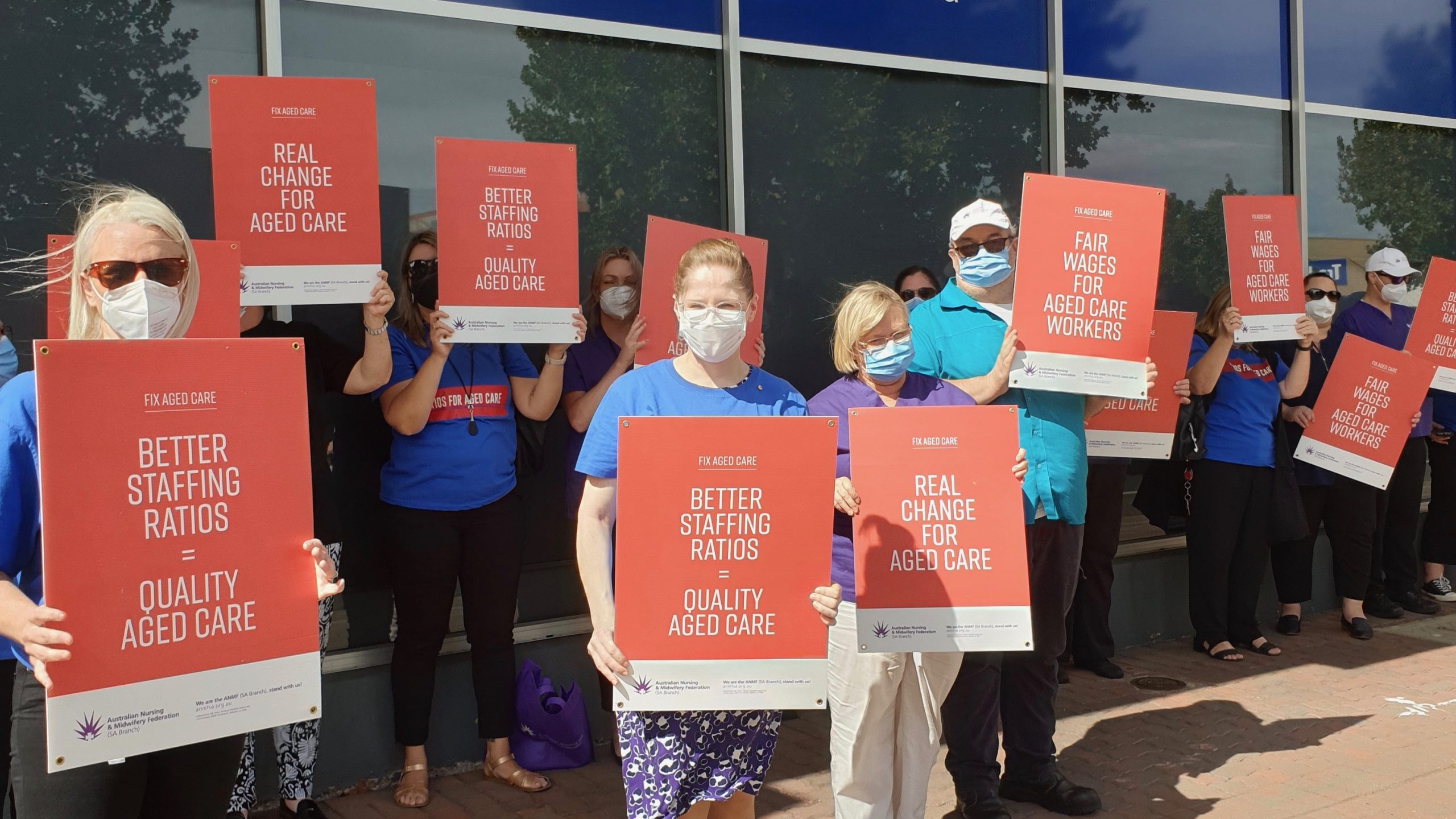On Monday, February 7, up to 1,700 troops from the Australian Defense Force were deployed to assist aged-care workers struggling to contain multiple outbreaks of COVID-19 in over 1,176 centers nationwide. The Omicron variant surge has disproportionately affected aged-care centers, leading to around 650 deaths since the beginning of this year. The number of deaths in aged-care centers in January alone accounted for more than 27% of the total national death toll.
There are close to 12,000 active cases of infection among aged-care residents across Australia, with more than 1,600 new cases reported just last week. The scale of the current crisis in aged-care centers is bigger than what was witnessed during the first wave of the COVID-19 pandemic that hit Australia in 2020. Issues that were raised at that time remained unresolved.
The recurring crises are a result of various problems that have been affecting the aged-care sector since the beginning of the pandemic. Staffing shortage is believed to be the primary cause of the current crisis. According to reports, on average, more than a quarter of all shifts in aged-care centers go unfilled, which translates to over 140,000 vacant shifts per week.
A combination of lack of wage reforms and restrictive travel policies that left hundreds of care providers stranded outside the country has contributed to the shortage. Additionally, wages of care providers on average have remained barely above the national minimum wage limit. With the spiraling crisis, carers have been leaving the sector for better wage opportunities in other sectors.
According to the Health Services Union (HSU), the starting hourly wage of a personal carer is AUD 21.96 (USD 15.74), which is barely above the national minimum wage of AUD 20.33 (USD 14.57). The average hourly wage of a qualified personal carer stands at AUD 23.09 (USD 16.55).
Last week, the Scott Morrison government announced a retention bonus of AUD 400 (USD 287) to prevent workers from leaving the sector. While unions have welcomed the bonus pay, they have criticized the government’s long-standing neglect of the sector and the lack of political will in addressing structural issues.
On Wednesday, the HSU raised its long-standing demand for overdue wage reforms. The HSU is demanding a 25% wage hike across the board for caregivers as the only way forward to arrest the crisis and prevent it from recurring.
“Taking people off minimum wage, for the most vulnerable they care for – I think most people in Australia think that’s a reasonable thing to do,” HSU secretary Gerard Hayes said in an interview with Australia Today. Hayes also pointed out that the crisis affects a large number of Australians who depend on these services for the care of aged members in their families.
“Virtually everybody in Australia will have a mother, a father, a grandparent who is either in aged care or approaching that period of their life. This is something that’s gone from not a political issue to something that is at the forefront of people’s minds,” Hayes said.
Apart from staffing shortages, other issues affecting the sector include late distribution of booster doses of COVID-19 vaccines and significant shortage of protective gear for caregivers.
Unions have also pointed out the government’s reluctance to resolve these issues even after a similar crisis was seen in 2020 which led to 685 deaths across facilities. In 2021, the Morrison government tasked the National Skills Commission to study the 2020 crisis and to come up with measures to prevent such a situation in the future.
Several healthcare unions and workers submitted their demands and suggestions to reform the sector. The final report was submitted in September 2021. However, the conservative Liberal-National coalition government is yet to respond to the report’s findings and recommendations and make them public.
The HSU has demanded that the report be made public, stating that the coalition government “can’t keep hiding its negligence on wages and training.” The accusations of negligence were also raised with respect to the recent response to the unfolding crisis.
On Tuesday, the Australian Nursing and Midwifery Federation (ANMF), which also includes caregivers in old-age homes, squarely laid the blame on the conservative government for neglecting the crisis when it began in January.
ANMF federal secretary Annie Butler pointed out that workers in aged-care centers have been calling for deployment of defense troops and protective gear since early January. Workers have also complained that the protective gear reached them much after the Omicron wave swept through their facilities. They had to source the gear from China and elsewhere during the crisis.
“Our aged care workers and nurses are holding the system together as best they can but they have got virtually nothing left,” said Butler in her searing criticism of the government’s late action. “This is a crisis that should never have been allowed to happen and we are saying directly, Mr [prime minister Scott] Morrison, you let this happen.”





